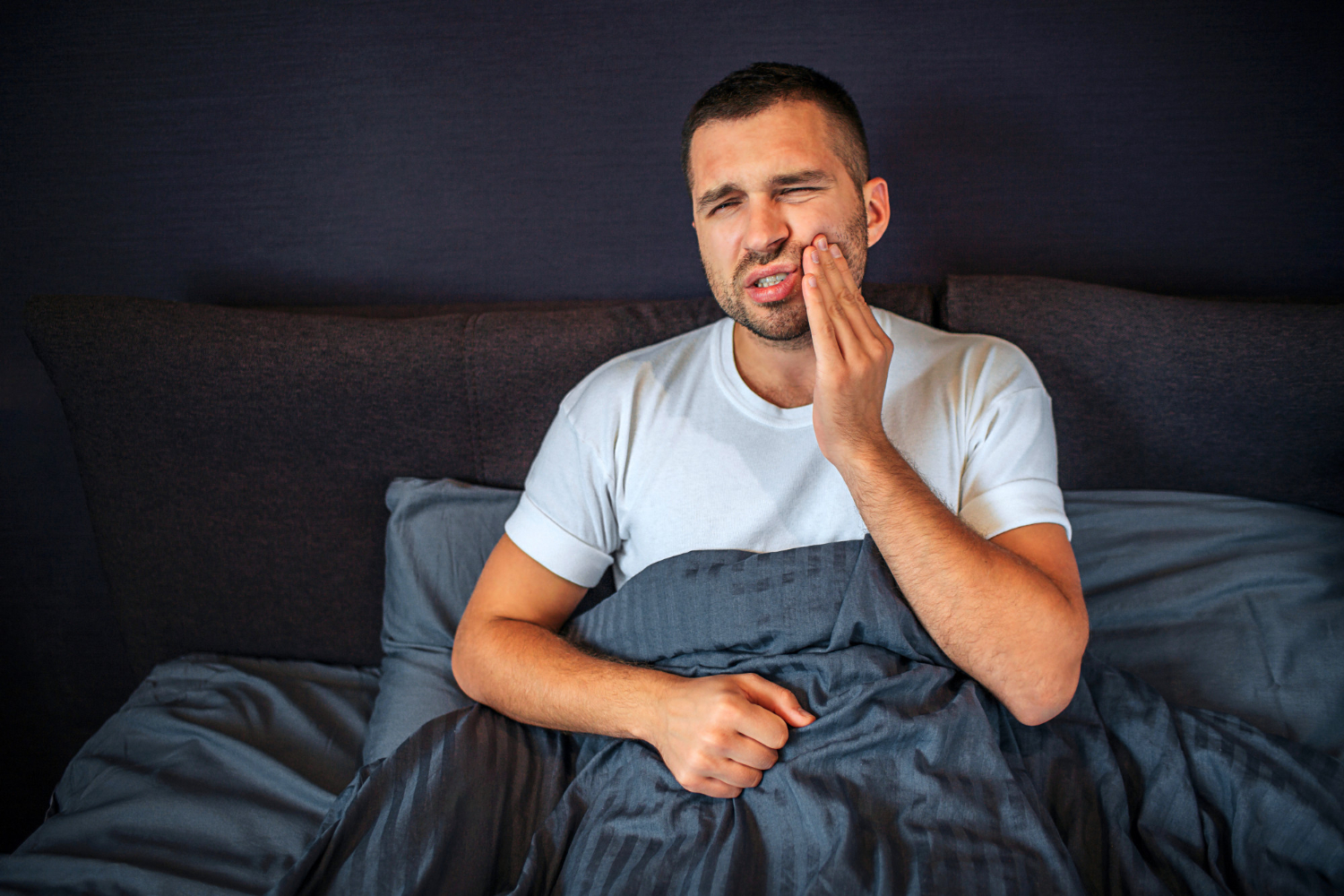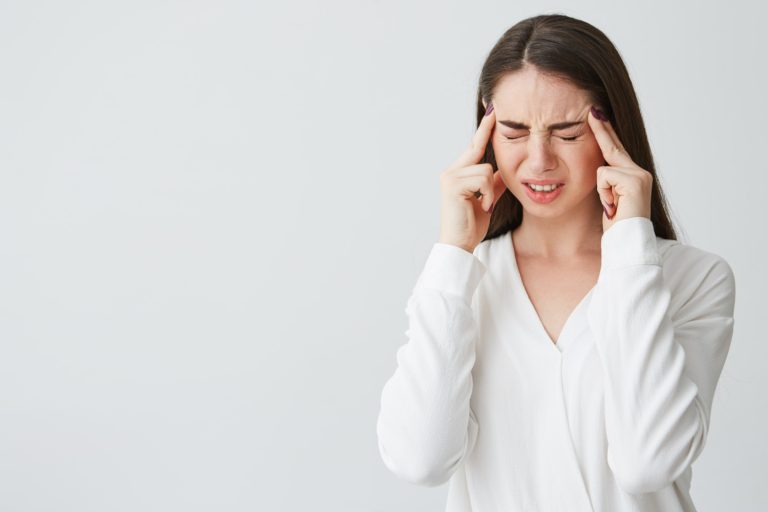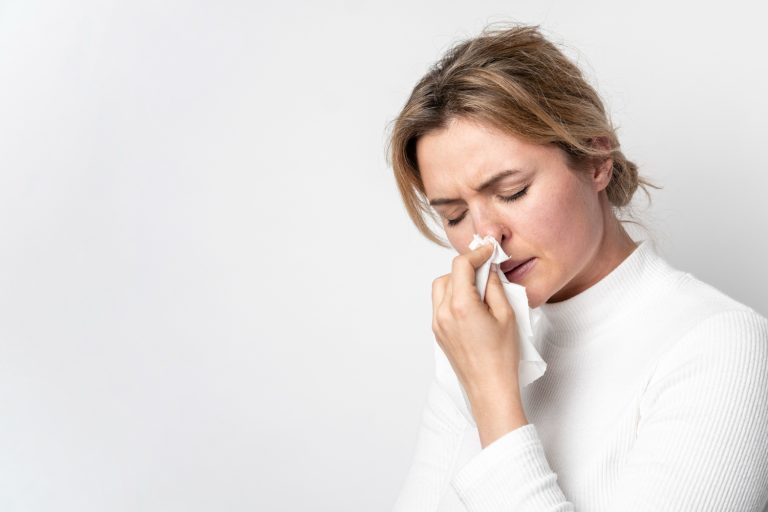What changes at night to make dental pain feel more intense?
Many people notice a sharp uptick in night-time toothache compared with discomfort during the day. Several mechanisms converge after dark. First, as you unwind and distractions fade, the brain tends to give pain signals more “airtime,” making nocturnal tooth pain feel louder and more persistent. Second, circadian changes in blood flow and inflammatory mediators can heighten sensitivity around an inflamed nerve (pulp inflammation) or irritated gum tissue. Together, these shifts amplify sensations such as throbbing, pulsating, or sharp pain that may have seemed manageable earlier.
You may also notice late-night tooth sensitivity to temperature if an area of tooth decay or a fracture has left dentine or the tooth nerve more exposed. When a cavity or crack deepens, fluid movement inside dentinal tubules becomes easier, and that movement is registered as pain—particularly in a quiet room where every twinge is more obvious.
How do body position and blood flow amplify pain when you lie down?
Lying flat changes hydrostatic pressure: more blood pools in the head and neck, subtly increasing pressure within inflamed tissues. If you have a brewing dental infection, gum inflammation, or a dental abscess, even a small rise in tissue pressure around the tooth’s apex can translate into noticeable pulsing in bed. People often describe this as a beat-matched throb that kicks up the moment the lights go out. Elevating your upper body slightly on extra pillows can reduce pressure for some people, but persistent pain still points to an underlying dental cause that needs professional treatment rather than self-management.
Could night-time teeth grinding be the hidden culprit?
Yes. Nocturnal bruxism—unconscious teeth grinding at night or jaw clenching—loads teeth, periodontal ligaments and jaw muscles. This can wake you with jaw stiffness, earache, a dull headache, or tooth soreness that feels worse toward the early morning. Over time, grinding accelerates tooth wear and can chip restorations, creating pathways to sensitivity and toothache at night. A custom night guard (occlusal splint) from your dentist helps absorb forces and protects enamel; it can also reduce temporomandibular joint pain at night for some patients.
Can sinus congestion make it feel like a toothache after dark?
Absolutely. When you lie down, sinus pressure may increase, particularly in the maxillary sinuses that sit just above the upper back teeth. Swollen sinus linings can refer pain to multiple teeth on one side, masquerading as a dental problem. People often report a dull, pressure-like ache that worsens when bending forward. While sinus-related tooth pain is real, it’s important to rule out dental causes—tooth decay, gum disease, or a tooth fracture—because they can coexist with sinus issues and need different solutions.
Which dental problems most often flare up at night?
Several conditions commonly underpin night-time dental discomfort:
- Cavity pain at night: Deep decay irritates the pulp, producing lingering sensitivity to hot/cold and spontaneous throbbing.
- Exposed tooth nerve pain: A crack, worn enamel, or a failing filling can expose sensitive dentine.
- Infection/abscess: A dental abscess builds pressure within bone and soft tissue, often peaking when you recline.
- Inflamed gums at night: Active gum disease can throb, especially if plaque has built up throughout the day.
- Nocturnal bruxism: Night-time clenching or grinding magnifies pressure pain across multiple teeth.
- Sinus-related tooth pain: Congestion radiates discomfort to upper molars, sometimes both sides.
Why does the quiet of night make pain feel bigger than it is?
During the day, work, social interactions and ambient noise offer natural “distraction therapy.” At night, the reduced distractions allow pain signals from the trigeminal system to dominate your perception. Anxiety about lost sleep can further heighten vigilance, making night-time oral pain feel worse than the actual tissue damage might suggest. This doesn’t mean the pain is “in your head”—only that context (silence, darkness, fatigue) lowers your threshold for noticing it.
What are the most common reasons toothaches feel worse at night?
- Increased blood flow to the head when lying down
- Reduced distractions so pain stands out
- Clenching or grinding teeth during sleep
- Night-time temperature changes that trigger sensitivity
- Dry mouth overnight reducing saliva’s buffering effect
- Worsening of underlying dental infections
- Sinus pressure when you lie flat
- Inadequate oral hygiene before bed allowing plaque acids to linger
When should you seek urgent dental care in Cranebrook?
If you live in or near Cranebrook, keep your Cranebrook emergency dentist contact handy and seek urgent dental care in Cranebrook if you notice any of the following:
- Severe, persistent tooth pain that interferes with sleep
- Facial swelling or a visible swelling on the gum
- Fever or feeling generally unwell with a toothache
- Difficulty swallowing or breathing
- Swollen lymph nodes beneath the jaw or in the neck
- Pus or a bad taste indicating possible abscess drainage
- Pain after dental trauma (chips, fractures, or a knocked tooth)
How does a Cranebrook dentist diagnose night-time toothache?
A thorough assessment starts with your description of pain characteristics (sharp vs dull, constant vs intermittent), triggers (hot/cold/sweet), and timing (worsens at night, early morning sensitivity). Your dentist will examine the teeth and gums, test bite and thermal responses, and may take radiographs to check for pressure build-up in teeth, cracks, hidden dental decay, or signs of gum disease. If sinus involvement is suspected, your dentist may coordinate with your GP or a pharmacist for medical evaluation.
What short-term steps are appropriate before you’re seen?
While the definitive fix is professional dental care, there are reasonable, non-“home-remedy” steps you can take responsibly:
- Arrange a prompt appointment with your Cranebrook dental clinic; many practices reserve time for emergencies.
- Use pharmacist-advised pain relief strictly as directed on the label or as advised by a healthcare professional.
- Avoid extreme temperatures and very sugary foods late at night if these trigger sensitivity.
- Note any red-flag symptoms (fever, swelling, spreading pain) and seek urgent care if they develop.
- Avoid experimenting with unproven “natural” fixes. Night-time pain is a signal—let a dental professional assess and treat the cause.
How does day vs night change toothache intensity?
Daytime vs. Night-time Toothache Intensity
| Factor | Daytime Impact | Night-time Impact |
|---|---|---|
| Blood flow to head | Typical circulation | Slightly increased in recumbency; may worsen swelling |
| Pain distraction | Higher (work, activity, noise) | Lower, making pain more noticeable |
| Body position | Upright, less pressure | Lying down, more pressure around inflamed tissues |
| Teeth grinding | Less frequent | More common during sleep (nocturnal bruxism) |
| Temperature sensitivity | Moderate exposure | Colder rooms/air can heighten triggers |
| Access to care | Routine appointments available | Limited; emergency slots or urgent care only |
Which causes map to which actions?
Common Causes of Night-time Toothache and Suggested Action
| Cause | Description | Suggested Action |
|---|---|---|
| Dental decay | Cavity irritating the pulp and dentine | Book an urgent dental appointment |
| Infection/abscess | Bacterial infection causing swelling and pressure | Seek emergency dental care |
| Gum disease | Inflammation of gums and supporting bone | Professional cleaning and periodontal care |
| Teeth grinding (bruxism) | Night clenching/wear causing pressure pain | Assessment and custom night guard |
| Sinus infection | Sinus pressure referring pain to upper molars | Medical/dental evaluation to confirm the source |
| Tooth fracture | Crack exposing sensitive structures | Urgent dental repair |
What bedtime habits help reduce risk over time?
Simple, consistent routines matter. Brush thoroughly with fluoride toothpaste before bed; clean between your teeth to remove plaque; avoid snacking on sugary foods or drinks late at night; and attend regular dental check-ups so small problems don’t escalate into night-time dental discomfort. If you wake with jaw fatigue or have noticed wear facets, ask about assessment for night guards to protect your teeth and reduce jaw clenching and pain.
Why choose a local Cranebrook dentist when night pain strikes?
Local familiarity matters when you’re sore and sleep-deprived. A nearby practice understands the community, typical appointment patterns, and can coordinate with local pharmacies and medical providers when associated symptoms (such as headache, earache, or fever) complicate the picture. Fast assessment prevents small issues—like a manageable cavity—from escalating into a dental emergency at night.
Where should you turn in Cranebrook right now?
When night-time toothache is robbing you of sleep, don’t push through it. Rapid, professional diagnosis is the safest way to protect your smile and your rest.
Why is M&M Dental Care the right choice if you’re near Cranebrook?
Sleepless nights with dental pain at night aren’t just inconvenient—they can signal problems that deserve prompt, precise care. M&M Dental Care offers a calm, evidence-led approach tailored to what’s actually causing your nocturnal tooth pain—from assessing pulp inflammation and hidden cracks to identifying nocturnal bruxism or possible sinus-related tooth pain. The team prioritises same-day urgent assessments where possible, clear explanations (without jargon), and treatment plans that focus on comfort and long-term prevention. If you’re in Cranebrook or surrounding suburbs, keep M&M Dental Care in your phone as your Cranebrook emergency dentist contact—so when a tooth starts throbbing at 11 pm, you already know who to call first for urgent dental care Cranebrook residents trust.
References
- Healthdirect Australia – “Toothache and swelling.” Healthdirect
- Better Health Channel (Victoria) – “Teeth and mouth care” and “Teeth grinding (bruxism).” Better Health Channel+1
- Sleep Health Foundation (Australia) – “Teeth Grinding/Bruxism.” Sleep Health Foundation
- RACGP – “Management of dental infections by medical practitioners.” RACGP
- Queensland Government – “Emergency dental.” Queensland Government
- Healthdirect Australia – “Teeth grinding (bruxism).” Healthdirect
FAQs
1) Why does my tooth throb more as soon as I lie down?
Reclining increases blood flow and pressure in inflamed tissues around a sensitive tooth. With no daytime distractions, your brain also pays more attention to those signals—so the throbbing seems to spike.
2) How do I tell if it’s a sinus problem or a dental problem?
Sinus-related pain typically affects multiple upper back teeth and may worsen when bending forward. Dental causes often localise to one tooth and can react sharply to hot/cold or sweet. If in doubt, book a dental exam—both issues can overlap.
3) Can night-time teeth grinding really make a healthy tooth ache?
Yes. Clenching or grinding overloads teeth and the supporting ligaments, leaving them tender by morning and raising the risk of cracks and sensitivity. A professionally fitted night guard helps absorb forces and protect enamel.
4) When is a night-time toothache an emergency?
Seek urgent care if pain is severe or persistent, if you have facial swelling, fever, difficulty swallowing or breathing, or notice pus. These can indicate infection that needs prompt professional treatment.
5) Will over-the-counter pain relief mask a serious issue?
Short-term use as directed can reduce discomfort but won’t cure the cause. If symptoms persist or escalate, you still need a dental diagnosis to prevent complications.
6) What can I do to reduce the chance of future night-time toothaches?
Maintain thorough evening oral hygiene with fluoride toothpaste, clean between teeth daily, limit late-night sugary snacks, wear a prescribed night guard if you grind, and keep up with regular check-ups so small problems don’t become sleepless nights.





